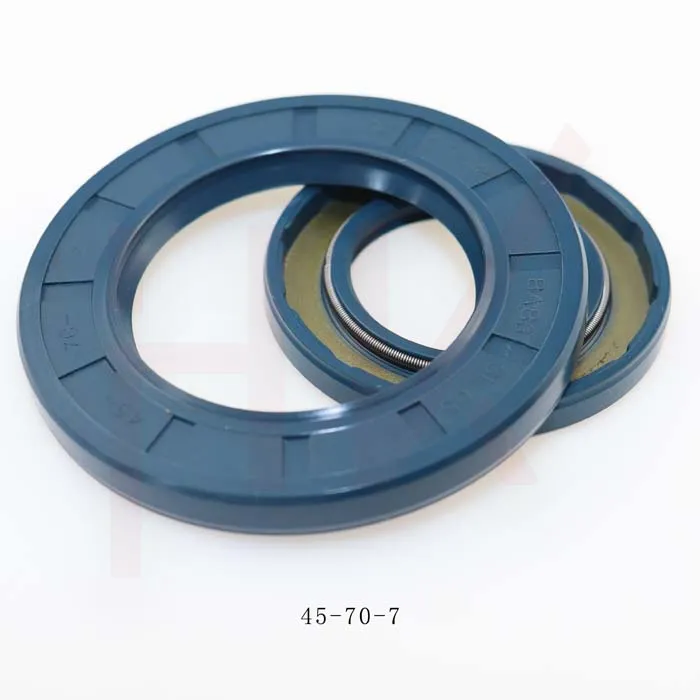Nov . 15, 2024 07:31 Back to list
dust wiper seal
Understanding the Importance of Dust Wiper Seals
Dust wiper seals play a crucial role in the maintenance and longevity of machinery and equipment across various industries. Often overlooked, these components serve as the first line of defense against contaminants that can degrade performance and lead to costly repairs. In this article, we will explore the function, benefits, and maintenance of dust wiper seals and why they should be an essential consideration in any machinery operation.
What are Dust Wiper Seals?
Dust wiper seals are protective barriers designed to prevent dust, dirt, and other contaminants from entering the exposed areas of machinery, especially those involving moving parts like pistons and rods. Typically made from durable materials such as rubber or polyurethane, these seals are engineered to fit snugly around moving components, effectively wiping away debris as the parts move. Their strategic placement on equipment like hydraulic cylinders, telescopic arms, and other fluid power systems makes them indispensable for optimal functioning.
Functions and Benefits
The primary function of dust wiper seals is to protect the internal components of machines from abrasive materials that can cause wear and tear. By preventing contaminants from entering critical areas, dust wipers help maintain the integrity of lubricants and other fluids that are vital for smooth operation. This is particularly important in hydraulic systems where the presence of dirt can lead to significant issues, including
1. Reduced Equipment Lifespan Contaminants can lead to increased wear on internal parts, thereby shortening the lifespan of machinery. Dust wiper seals significantly minimize this risk.
2. Enhanced Performance Clean machinery operates more effectively. By keeping dirt and dust at bay, dust wiper seals help maintain the performance of systems, ensuring that they operate at peak efficiency.
3. Lower Maintenance Costs Preventative measures, such as the use of dust wiper seals, can reduce the frequency of repairs and maintenance, ultimately saving money. Routine maintenance is less intrusive and costly than major repairs due to damage caused by operational failures.
4. Improved Safety Machinery that operates smoothly and without unnecessary interruptions is safer. Contaminants can lead to malfunctions that pose risks to operators and surrounding workers, making dust wiper seals an essential safety feature.
Selection and Installation
dust wiper seal

Choosing the right dust wiper seal involves understanding the specific requirements of the machinery in question. Factors such as the type of equipment, the working environment, and the materials being used will influence the selection process. It's crucial to consider the following attributes when selecting a wiper seal
- Material Compatibility Ensure that the material of the seal is compatible with the fluids and substances it will encounter during operation.
- Temperature Resistance The working environment's temperature will affect the seal's performance. Select a wiper that can withstand temperature fluctuations if necessary.
- Size and Fit Proper sizing is critical for ensuring that the wiper seal functions effectively. Even a small gap can allow contaminants to infiltrate the machinery.
Once the appropriate dust wiper seal is selected, proper installation is critical. This process often involves careful alignment and sometimes the use of specialized tools or equipment. Following manufacturer guidelines will ensure the seal provides maximum protection.
Maintenance and Replacement
To maintain the effectiveness of dust wiper seals, regular inspections are essential. Operators should check for signs of wear, cracking, or degradation. If any damage is evident, it is advisable to replace the wiper seal immediately to prevent further contamination.
Additionally, periodic cleaning of the machinery can help prolong the life of dust wiper seals. Removing accumulated dirt and debris from areas around the seals will prevent the seals from being overwhelmed and will keep the equipment in optimal working condition.
Conclusion
In conclusion, dust wiper seals are a small but vital component of many machinery systems. Their role in protecting against contamination can save companies time and money while increasing safety and performance. Proper selection, installation, and maintenance of these seals are crucial steps in ensuring the longevity and efficiency of machinery. By recognizing the importance of dust wiper seals, operators and maintenance teams can make informed decisions that lead to more reliable and safer machinery operations. Investing in dust wiper seals is not just a matter of performance; it is a commitment to maintaining the integrity of equipment and the safety of the workplace.
-
TCN Oil Seal Metal Ring Reinforcement for Heavy Machinery
NewsJul.25,2025
-
Rotary Lip Seal Spring-Loaded Design for High-Speed Applications
NewsJul.25,2025
-
Hydraulic Cylinder Seals Polyurethane Material for High-Impact Jobs
NewsJul.25,2025
-
High Pressure Oil Seal Polyurethane Coating Wear Resistance
NewsJul.25,2025
-
Dust Proof Seal Double Lip Design for Construction Equipment
NewsJul.25,2025
-
Hub Seal Polyurethane Wear Resistance in Agricultural Vehicles
NewsJul.25,2025
-
The Trans-formative Journey of Wheel Hub Oil Seals
NewsJun.06,2025
Products categories
















